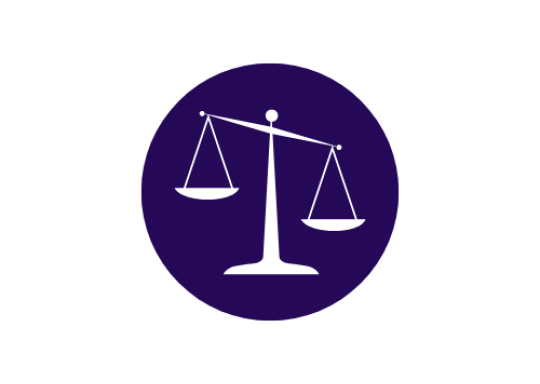The Equality Act and Disabled people
Contents
What is Physical or mental impairment?
What is a substantial and long-term adverse effect?
What are normal day-to-day activities?
How you can use the Equality Act
Help with your discrimination claim
Equality Advisory Support Service (EASS)
What is the Equality Act?
If you have a physical or mental impairment that has a substantial and long-term adverse effect on your ability to carry out normal day-to-day activities, you can use the Equality Act to protect you against discrimination in education, work and services provided for you. It can require employers, colleges, venues and service providers to make reasonable adjustments, provide support and make things accessible.
You are also protected from discrimination if you are connected with someone who has a disability such as a family member or friend or if you've complained about discrimination or supported someone else’s claim.
The Equality Act also protects you if you are discriminated against because of age, sex, sexual orientation, religion and belief, gender reassignment, pregnancy and maternity, marriage and civil partnership.
The Act applies in Great Britain only. If you are from Northern Ireland, contact the Equality Commission for Northern Ireland
What is Physical or mental impairment?
Physical or mental impairment can include:
- physical impairments, such as mobility difficulties
- sensory impairments such as those affecting hearing or sight
- learning difficulties, including people with specific learning difficulties such as dyslexia and dyspraxia
- mental health conditions or illnesses which have a long-term effect such as depression and anxiety, panic attacks, phobias, eating disorders, obsessive compulsive disorders, schizophrenia and bipolar affective disorder
- genetic and progressive conditions, if the condition affects your ability to carry out normal day-to-day activities such as motor neurone disease, muscular dystrophy
- conditions which are characterised by several cumulative effects such as pain or fatigue
- hidden impairments such as asthma or diabetes, if these have an effect on your day-to-day activities
- past history of impairment - this applies if you are no longer disabled but met the definition in the past.
There is no need for you to have a medically diagnosed cause for your impairment. What matters is the effect of the impairment on you.
What is a substantial and long-term adverse effect?
Substantial adverse effect
A substantial adverse effect is something that is more than minor or trivial and goes beyond the normal differences in ability which may exist between people.
Long-term effect?
A long-term effect is one:
- which has lasted at least 12 months; or
- where the total period for which it lasts is likely to be at least 12 months; or
- which is likely to last for the rest of your life.
Your impairment is also treated as long-term if it previously had a substantial adverse effect and is likely to recur. - for example, long term conditions where you have periods when you are well or better.
What are normal day-to-day activities?
These are the things you have to do every day such as shopping, getting washed or dressed, preparing and eating food, doing household tasks, walking, talking, hearing, reading, communicating or interacting socially with others.
Types of discrimination
Discrimination is where you are treated unfairly and are put at a disadvantage when compared with non-disabled people.
You can be discriminated against:
- Directly - if you are treated less favourably than others
- Discrimination arising from your disability – Such as if you are disciplined because you need to take more time off work than your colleagues to attend medical appointments
- Indirectly – if an employer, college, venue or organisation has rules or arrangements in place which put you at an unfair disadvantage as a disabled person
- If you are being harassed
- If you are being victimised because you have complained about how you or someone else has been treated
How you can use the Equality Act
Under the Act, disabled people should be treated equally. Protection from discrimination applies in many situations such as buying or renting property, education, employment, exercise of public functions, goods, services, facilities and transport.
You cannot use the Act against an individual, such as a neighbour who harasses you, but you may be able to report this as a hate crime
The Equality Act does cover harassment by an individual at a place where you work.
If you think you’ve been unfairly discriminated against you can:
- complain directly to the person or organisation
- use someone else to help you sort it out - for example your union representative
- make a claim in a court or tribunal
What the Act can do for you
Under the Equality Act, service providers, employers and colleges have to make reasonable adjustments to help you. These can include:
- providing flexible working hours
- flexible return to work policies following illness
- modifying work performance targets
- providing special equipment or extra assistance to help you in college or work (some of this may be provided by education grants or under the access to work scheme
- providing information in an accessible format such as Braille, Large Print, Easy Read or by using coloured paper
- making a website accessible
- providing ramps for wheelchair access
- providing designated car parking spaces
- providing adapted toilets
- providing lifts to access offices or venues which are not on the ground floor
- making changes to “physical features” – for example to accommodate wheelchairs or a guide/assistance dog
- making adjustments so that you can access a restaurant, club or other entertainment venue
Help with your discrimination claim
Equality Advisory Support Service (EASS)
Our EASS Helpline can advise and assist you if you feel you have been discriminated under the Equality Act. It can also advise you about reasonable adjustments.
Phone: 0808 800 0082
Textphone: 0808 800 0084
There is a webcam portal for BSL users.
You can also use an online contact form
Website: www.equalityadvisoryservice.com/
If you are providing advice
If you are providing advice Contact Equality and Human Rights Commission (EHRC) Adviser Support
England: 0161 829 8190
Scotland: 0141 228 5990
Wales: 029 2044 7790
The service is available within core office hours.
More information and resources are available on the Equality and Human Rights Commission (EHRC) website
Equality Act Resources
Disability Rights UK's Right to Participate website has videos, animations, information and resources to help you find out more about the Equality Act and to fight discrimination. It includes a selection of template letters, which you can use to complain if you think you have been treated wrongly.
Students
Please see our information on understanding the equality act: information for disabled students
You can also call our Disabled Students Helpline



